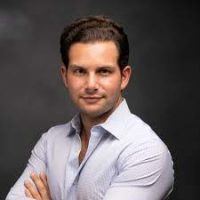It can be daunting for people in recovery to believe in themselves again and focus on career success. Jaime Blaustein co-founder and CEO of the Sylvia Brafman Mental Health Center, understands this from his own personal experience. In this post he shares how by using the the correct tools and support, he and others are enjoying a fulfilling career after addiction. Jaime says, “Simply put, recovery blessed me with the opportunity to have a career renaissance and I’m on a mission to help others navigate that same rebirth.”
Rebirth from addiction to career growth
I remember getting out of my seventh treatment center and having a newfound sense of life internally, but feeling lost externally. Early sobriety was not only about continuing the work that was needed to get better, but also learning how to resurrect (and begin, some might say) my career – which was a major source of fear.
The looming questions that plague all of us at one point or another flooded my mind – What am I supposed to do? How am I going to make a living? What do I really care about? How much of that is ego versus true career fulfillment?
Further compounding these questions was the fact that due to my mental health and six years as an actively using addict, I had a lot of gaps in my track record. No meaningful work history, legal blemishes, a bunch of arrests, or a rather unimpressive GPA in college.
How I would take what had transpired over the previous years and frame it in a way that would reflect who I truly am, and what I’m capable of, seemed to be an exercise in futility.
The beginning
After graduating from college by the skin of my teeth, I was able to land a series of jobs in the financial industry that had way less to do with my merit (and ability to show up to work) and way more to do with my ability to be charismatic in interviews. With no real skillset to leverage, I sold my personality in order to land wealth management (sales) jobs at Morgan Stanley (which was short-lived as a result of my drug use) and Wells Fargo, where I ultimately got clean.
Developing a life toolkit to develop your career
With a new life ‘toolkit’ at my disposal through recovery, I leveraged this experience to land a job in institutional sales at Lord Abbett, an asset management (mutual fund) firm. Though I was grateful to have a job in the financial industry and liked certain elements of it, I yearned for something more intellectually rigorous than sales.
So, after two years of sobering, I applied to business school and got completely honest in my applications about where I had been and what my life looked like today. Fearful that I would be written off as an admitted drug addict, I forged forward knowing that all it took was one.
The first was Duke University, which I credit for recognizing the value of my recovery and giving me two of the best years of my life in business school. After receiving my MBA, I went to Wall Street, where I worked as an investment banker in the Industrials group at Credit Suisse and focused on M&A, equity, and leveraged finance.
Rehab beginnings
A few years later, I received a call from Ben Brafman, who owned and operated Destination Hope, a drug rehab in South Florida that I attended (and got kicked out of) when I was 21 years old. Ben explained that he sold Destination Hope and wanted to launch a new center focused on mental health. He was looking for a partner with business acumen that could also be a patient advocate.
Between seven treatment centers and my experience
in business, I was the right person for the job. After an internal tug-of-war, my desire to expand my platform to help others won out. I left my investment banking job and moved from New York to Florida. It was here that I took on the role of CEO and Co-Founder at The Sylvia Brafman Mental Health Center.
A fulfilling career
One thing that was important to me was to establish a component to the center that helped patients navigate the external elements of personal wellness, namely a fulfilling career.

This inspired me to establish The Career Mentorship Program, which packages all of the lessons learned from my experiences of overcoming addiction and mental illness while simultaneously trekking through the headwinds that made righting the career ship challenging.
The five phases
The program begins with a one-on-one meeting where the patient and I take a deep dive into their experiences.
This sets the stage for a path forward that consists of a five-phase process: Contextualization, Reflection, Consideration, Preparation, and Execution.
Phase 1
The goal of the first phase, Contextualization, is to simply understand the context of the patient’s life. I want to understand where they’ve been, what they’ve enjoyed and disliked doing, and their current outlook. We discuss their upbringing, educational background, work experience, and what potential obstacles they might be facing.
Phase 2
The second phase is Reflection, an intimate conversation where we reflect on what’s important to the patient. This is where we boil down the criteria that they care about the most when thinking about what they want to do in their career.
Phase 3
Consideration is the phase where we get more specific with respect to two aspects: sector and function. We narrow down a list of sectors that interest the patient – healthcare, retail, consumer products, technology, real estate, etc.
Phase 4
Action is the name of the game when we work on Preparation. It’s where we begin to take steps towards the desired path. We also do the research required to get smart on the career. We find out what’s necessary to secure a job in that field from a skillset and energy perspective. Additionally, we devise a networking plan, tapping into the patient’s natural network and utilizing LinkedIn. We look at job boards and other alternatives that work toward making connections. Interview preparation is also an important focus here.
By this fourth Preparation phase, two Sylvia Brafman Career Fellows have entered to assist. These are folks who have excelled in their careers. They want to give back by helping provide guidance to those who need it most.
Phase 5
The last phase, Execution, is when we go into the world and we make it happen.
It’s important to keep in mind that the primary motivation is not external success. It’s maintaining mental health and maintaining serenity.
In closing
People should not have to put their career dreams on hold in order to seek treatment. This should be the opportunity to take one step back, so that we can take five steps forward and show up as our best selves.
About Jaime Blaustein

Jaime Blaustein is Co-Founder and CEO of SBMHC. Prior to this role, he was an investment banker at Credit Suisse in its Global Industrials coverage group in New York City. Prior to this role, he worked in institutional sales at Lord Abbett, a mutual fund manager overseeing ~$150 billion in assets under management. He previously worked in wealth management at Morgan Stanley and later Wells Fargo.
He received his undergraduate degree from the University of Michigan and his M.B.A. from Duke University. He is an unapologetic NY Giants, Duke Blue Devils and Michigan Wolverine fan. His interests include fitness, steakhouses, international travel, meditation retreats, and quality time with friends. Jaime is a newly minted resident of Miami. He is actively involved in sponsoring dozens of men in recovery and is beyond excited to marry his business expertise with his passion for helping others make a comeback from the depths of mental illness and addiction.



![women [longevity live]](https://longevitylive.com/wp-content/uploads/2020/01/photo-of-women-walking-down-the-street-1116984-100x100.jpg)










